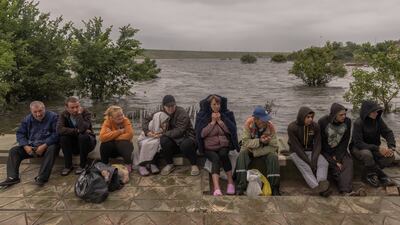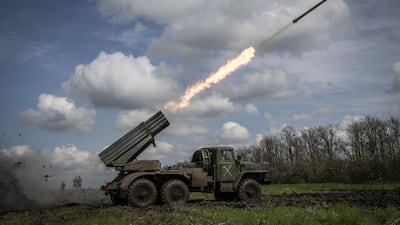A backlash against cheap imports has resulted in 160 tonnes of Ukrainian grain being deliberately spilt in Poland amid large-scale protests in the country against what farmers describe as unfair competition.
Ukraine’s Deputy Prime Minister, Oleksandr Kubrakov, described Sunday's destruction of the corn near a Polish railway station – the fourth such incident in recent months – as an act of “impunity and irresponsibility”.
Sharing pictures of mounds of grain spilt from train wagons, he wrote on X: “These pictures show 160 tonnes of destroyed Ukrainian grain. The grain was in transit to the port of Gdansk and then to other countries.
“The fourth case of vandalism at Polish railway stations. The fourth case of impunity and irresponsibility.”
Ukrainian President Volodymyr Zelenskyy later warned: “If steps to solve the problem with Poland at the border are not found, we will protect our business.”
Some Ukrainian grain has been routed by land since Russia invaded its neighbour in February 2022 and blockaded its Black Sea ports, throttling trade and damaging Ukraine’s wartime economy.
Although in theory grain can only pass through Poland – for example to its Baltic Sea ports or the port of Rotterdam in the Netherlands – and must be carried by registered transit companies, there are reports of slippage into the Polish market.
Farmers across Europe have recently been demonstrating against constraints placed on them by EU measures to tackle climate change, as well as rising costs and what they say is unfair competition. The latter complaint has had a particular focus on Ukraine since 2022, when the EU waived duties on Ukrainian food imports to help it following the Russian invasion.
“We know that protests that take the form of spilling grain are not good,” Polish Agriculture Minister Czeslaw Siekierski told a news conference, adding that he thought that sometimes the reaction to such incidents from the Ukrainian side went too far.

Lidia Kowalska, a police spokeswoman from the city of Bydgoszcz in northern Poland, said the incident took place in the nearby village of Kotomierz, and that the product spilt was corn.
“The details and circumstances are being investigated,” she said. “At 9.30am, we received a report about grain that had spilt out, it turned out that it was from eight wagons.”
Ukraine has experienced a rebound in its exports through the Black Sea which could eventually point the way out of the grain-related rift.
Hundreds of ships have sailed an alternative corridor that hugs the Black Sea's western shores after Russia scuppered a UN deal ensuring safe passage out of Ukraine's ports.
The lane's success is attributed to Ukrainian naval gains and falling insurance costs that have lured back ship owners. The volume of rail freight destined for Ukraine's seaports climbed by 70 per cent from October to November, according to official figures.













































































